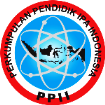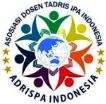Analysis of Validity and Practicality of Ethno-STEM Based Science E-Modules to Enhance Critical Thinking Skills and Independence of Students
Abstract
This study aims to assess the validity and practicality of the development of an ethno-STEM-based IPA (Natural Sciences) E-module in the theme of Jamu (traditional herbal drink) to train students’ critical thinking skills and independence. The research type is research and development (R&D) using the ADDIE (Analysis, Design, Development, Implementation, and Evaluation) instructional design. The research focuses on validity and practicality by using a questionnaire research instrument assessed by experts and practitioners with Likert scale categories techniques. The data analysis results indicate that the e-module validity in the media aspect is 40.8, the material and learning aspects is 50.9, and the language aspect is 15. The validity is distributed within the very valid category. Additionally, the practicality of the e-module of a small group of students is 80 and teachers is 85.5 and it is distributed in the very practical category. The operational practicality data suggest that student assessment is 76 or in the practical category and teacher is 82.5 or in the very practical category. The results of validity and practicality imply that the development of the ethno-STEM based science e-module in the theme of Jamu is valid and practical to be implemented to improve critical thinking skills in IPA learning.
Keywords: critical thinking skills, e-module, independence, practicality, validity
Full Text:
PDFReferences
Allen, W. C. (2006). Overview and Evolution of the ADDIE Training System. Advances in Developing Human Resources, 8(4), 430–441. https://doi.org/10.1177/1523422306292942
Arfianawati, S., & Woro Sumarni, dan. (2016). Model Pembelajaran Kimia Berbasis Etnosains Untuk Meningkatkan Kemampuan Berpikir Kritis Siswa. Jurnal Pengajaran MIPA, 21(6), 16. https://doi.org/10.18269/jpmipa.v21i1.669
Asrizal, Desnita, & Darvina, Y. (2021). Analysis of Validity and Practicality Test of Physics Enrichment E-Book Based on CTL And Enviromental Factor. Journal of Physics: Conference Series, 1876(1). https://doi.org/10.1088/1742-6596/1876/1/012034
Asyafah, A. (2019). Menimbang Model Pembelajaran (Kajian Teoretis-Kritis atas Model Pembelajaran dalam Pendidikan Islam). TARBAWY : Indonesian Journal of Islamic Education, 6(1), 19–32. https://doi.org/10.17509/t.v6i1.20569
Azwar, S. (2007). Metode Penelitian. Pustaka Pelajar.
Branch, R. M. (2009). Approach, Instructional Design: The ADDIE. In Department of Educational Psychology and Instructional Technology University of Georgia (Vol. 53, Issue 9). https://doi.org/https://doi.org/10.1007/978-0-387-09506-6
Chusni, M. M., Saputro, S., Suranto, & Rahardjo, S. B. (2020). Review of critical thinking skill in Indonesia: Preparation of the 21st century learner. Journal of Critical Reviews, 7(9), 1230–1235. https://doi.org/10.31838/jcr.07.09.223
Dewi, N. P. S. R., Wibawa, I. M. C., & Devi, N. L. P. L. (2017). Kemampuan Berpikir Kritis dan Keterampilan Proses dalam Pembelajaran Siklus Belajar 7E Berbasis Kearifan Lokal. JPI (Jurnal Pendidikan Indonesia), 6(1), 125–133. https://doi.org/10.23887/jpi-undiksha.v6i1.9476
Elisa, E., Prabandari, A. M., Istighfarini, E. T., Alivia, H., Inayati H, L. W., & Nuraini, L. (2022). Digital Module Innovation Based on Exploration of Physics Concepts Containing Local Wisdom “Making Traditional Snacks” to Support the Formation of Pancasila Students. Jurnal Penelitian Pendidikan IPA, 8(6), 2923–2932. https://doi.org/10.29303/jppipa.v8i6.2171
Facione, P. A. (2015). Critical Thinking : What It Is and Why It Counts. Insight Assessment, 1–30.
González, M., González, M., Martín, M. E., Llamas, C., Martínez, Ó., Vegas, J., Herguedas, M., & Hernández, C. (2015). Teaching and learning physics with smartphones. Journal of Cases on Information Technology, 17(1), 31–50. https://doi.org/10.4018/JCIT.2015010103
Jaleel, S., & O.M., A. (2017). A Study on the Relationship between Self Directed Learning and Achievement in Information Technology of Students at Secondary Level. Universal Journal of Educational Research, 5(10), 1849–1852. https://doi.org/10.13189/ujer.2017.051024
Johan, H. (2014). Pengaruh Sscs Problem Solving untuk Meningkatkan Keterampilan Berpikir Kritis Mahasiswa Pada Pembelajaran Konsep Listrik Dinamis. Jurnal Pendidikan Matematika Dan IPA, 4(1), 13–19. https://doi.org/10.26418/jpmipa.v4i1.6202
Kemendikbudristek. (2022). Dimensi, Elemen, dan Subelemen Profil Pelajar Pancasila pada Kurikulum Merdeka. In Kemendikbudristek.
Kuhlthau, C. C., Maniotes, L. K., & Caspari, A. K. (2007). Guided Inquiry: Learning in the 21st Century. ABC-CLIO. https://books.google.co.id/books?id=z4RmUhkg7lAC
Manassero-Mas, M. A., & Vázquez-Alonso, Á. (2022). An Empirical Analysis of The Relationship Between Nature of Science and Critical Thinking Through Science Definitions and Thinking Skills. SN Social Sciences, 2(12). https://doi.org/10.1007/s43545-022-00546-x
Mayasari, A., Supriani, Y., & Arifudin, O. (2021). Implementasi Sistem Informasi Manajemen Akademik Berbasis Teknologi Informasi dalam Meningkatkan Mutu Pelayanan Pembelajaran di SMK. JIIP - Jurnal Ilmiah Ilmu Pendidikan, 4(5), 340–345. https://doi.org/10.54371/jiip.v4i5.277
Mckenney, S., & Reeves, T. C. (2013). Chapter 9: Educational Design Research. In Handbook of Information Technology in Education: Professional Learning and Development of Teachers (Issue May, p. 3).
Negru-Subtirica, O., Pop, E. I., Luyckx, K., Dezutter, J., & Steger, M. F. (2016). The meaningful identity: A longitudinal look at the interplay between identity and meaning in life in adolescence. Developmental Psychology, 52(11), 1926–1936. https://doi.org/10.1037/dev0000176
Nieto, S. (2017). Re-imagining multicultural education: new visions, new possibilities*. Multicultural Education Review, 9(1), 1–10. https://doi.org/10.1080/2005615X.2016.1276671
Nieveen, N. (1999). Prototyping to Reach Product Quality. In Design Approaches and Tools in Education and Training (pp. 125–135). https://doi.org/10.1007/978-94-011-4255-7_10
OECD. (2023a). PISA 2022 Results Factsheets Indonesia (Vol. 1). https://oecdch.art/a40de1dbaf/C108.
OECD. (2023b). Program For International Student (PISA) 2022 Assessment and Analytical Framework. https://www.oecd-ilibrary.org/education/pisa-2022-assessment-and-analytical-framework_dfe0bf9c-en
Oviana, W. (2015). Pemahaman Hakekat Sains dan Aplikasinya dalam Proses Pembelajaran sains. Prosiding Seminar Nasional Biotik, 3(1), 485–490.
Puspita, L. (2019). Pengembangan Modul Berbasis Keterampilan Proses Sains sebagai Bahan Ajar dalam Pembelajaran Biologi. Jurnal Inovasi Pendidikan IPA, 5(1), 79–88. https://doi.org/10.21831/jipi.v5i1.22530
Ravista, N., Sutarno, S., & Harlita, H. (2021). Validity and Practicality of Guided Inquiry-Based E-Modules accompanied by Virtual Laboratory to Empower Critical Thinking Skills. Jurnal Penelitian Pendidikan IPA, 7(SpecialIssue), 331–339. https://doi.org/10.29303/jppipa.v7ispecialissue.1083
Saavedra, A. R., & Opfer, V. D. (2015). Learning 21st-century skills requires 21st-century teaching (pp. 8–13). https://doi.org/doi:10.1177/003172171209400203
Santos, L. F. (2017). The Role of Critical Thinking in Science Education. Journal of Education and Practice, 8(20), 159–173.
Setianingrum, D. A., Ula, E. M., Pratiwi, S., & Jumadi, J. (2022). Development of Science Module based on Flipbook about Physics in the Respiratory System to Improve Students’ Learning Independence. Jurnal Penelitian Pendidikan IPA, 8(6), 2621–2628. https://doi.org/10.29303/jppipa.v8i6.1923
Suastika, I. K. (2023). The Practicality and Effectiveness of E-Modules with an Inquiry Approach in Geometry Learning Courses for Elementary School Teacher Education Students. JTAM (Jurnal Teori Dan Aplikasi Matematika), 7(4), 1118. https://doi.org/10.31764/jtam.v7i4.16543
Sudarmin, Sumarni, W., Pujiastuti, & Sumarti, S. S. (2019). Implementing the Model of Project-Based Learning: Integrated with Ethno-STEM to Develop Students’ Entrepreneurial Characters. Journal of Physics: Conference Series, 1317(1), 1–8.
Sudibyo, D., & Rahdiyanta, D. (2021). Development of Product-Based E-modul of Manufacturing Helical Gears in Mechanical Engineering. American Journal of Educational Research, 9(4), 212–217. https://doi.org/10.12691/education-9-4-9
Suharyani, L. A., & Siswanto, J. (2022). Analisis Kemampuan Berpikir Kritis Siswa Kelas X SMA Untuk Pengembangan Modul Ajar Konsep Perubahan Lingkungan Melalui Penerapan Education for Sustainable Development (ESD). Journal of Comprehensive Science, 1(5), 1276–1284.
Utami, W. A., Harlita, H., & Karyanto, P. (2022). Validity and Practicality of Discovery Learning E-Modules on environmental change material to Empower Critical Thinking Skills. Jurnal Penelitian Pendidikan IPA, 8(3), 1593–1598. https://doi.org/10.29303/jppipa.v8i3.1726
Zubaidah, S. (2016). Keterampilan Abad Ke-21: Keterampilan Yang Diajarkan Melalui Pembelajaran. Isu-Isu Strategis Pembelajaran MIPA Abad 21, 2(2), 1–17.
DOI: http://dx.doi.org/10.24014/jnsi.v7i2.32828
Refbacks
- There are currently no refbacks.

Journal of Natural Science and Integration
E-ISSN: 2620-5092 P-ISSN: 2620-4967
Published By:
Department of Science Education, Faculty of Education and Teacher Training,
State Islamic University of Sultan Syarif Kasim Riau, Indonesia
Mailing Address:
Jl. H.R Soebrantas Km. 15 No. 155
Kelurahan Simpang Baru
Kecamatan Tuah Madani, Pekanbaru, Riau, Indonesia
Email: jnsi.tadrisipa@uin-suska.ac.id
Indexed By:
Journal of Natural Science and Integration is licensed under a Creative Commons Attribution 4.0 International License.


_-_Copyy2.png)






.jpg)
.png)
.jpg)
.jpg)




